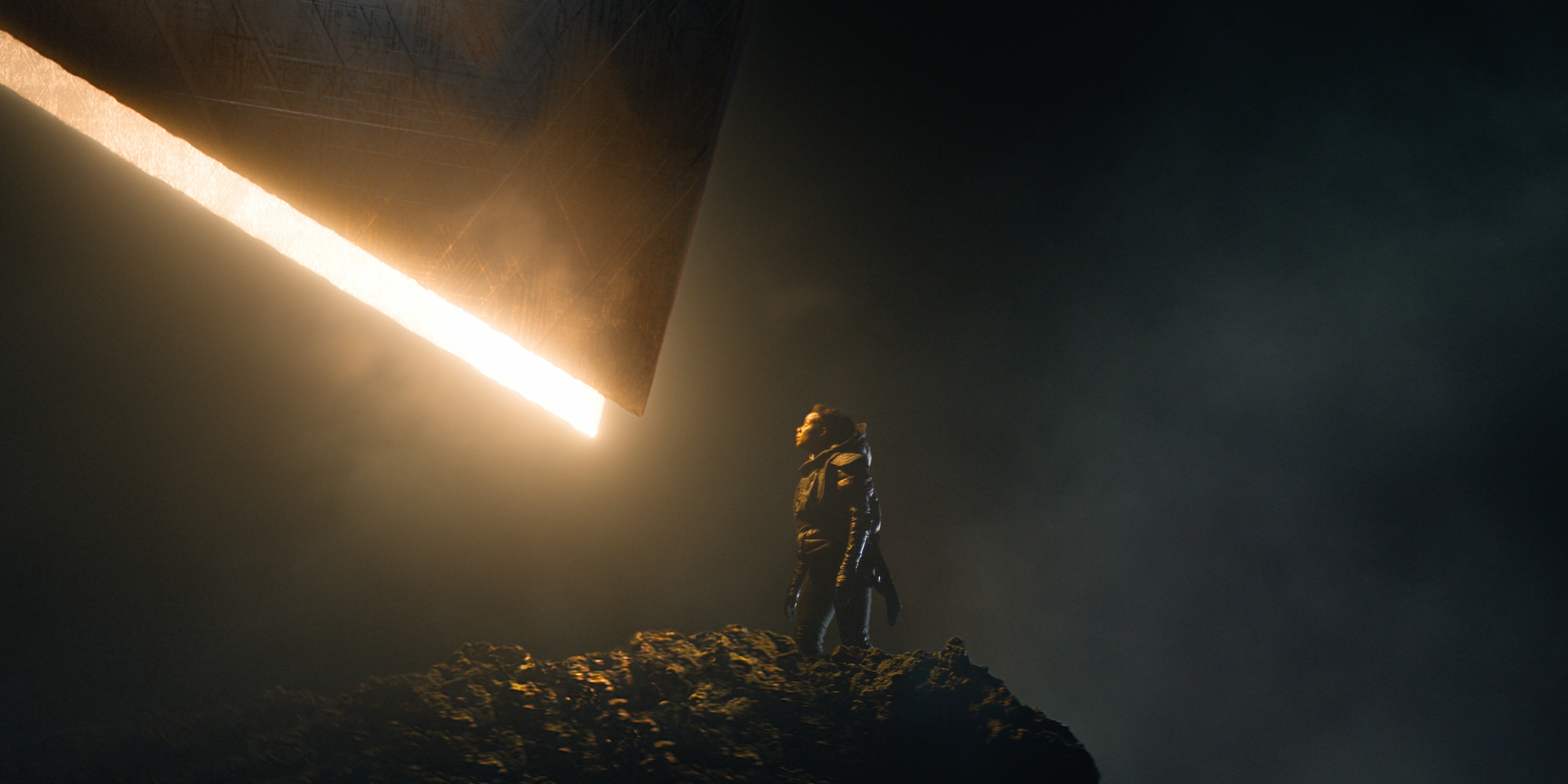This Foundation article contains spoilers.
Don’t sleep on Foundation, Apple TV+’s excellent adaptation of Isaac Asimov’s once-thought-to-be-unfilmable hard science fiction novel series that chronicles the 1,000-year fall of a galactic empire. The story that was long considered too expansive for Hollywood (although many have tried) finds the perfect home on TV in the hands of creators David S. Goyer (Batman Begins, Krypton) and Josh Friedman (Snowpiercer, Avatar 2). They’ve taken the hefty source material that sometimes reads like half-history book half-math dissertation and translated it into an entertaining drama that resembles something closer to Star Trek or Game of Thrones. The result is an adaptation that’s generally faithful to Asimov’s original work, but that also expands on events in interesting ways that the exposition-heavy novel didn’t in 1951. (But expect a few radical changes along the way, too.)
Many sci-fi fans consider Foundation to be the finest book ever written in the genre, so you might be familiar with the premise even if you’ve never read the novel. But here’s a primer: When professor Hari Seldon (Jared Harris) develops a new branch of mathematics called psychohistory, which can predict the future of large societies, it leads to panic in the powerful Galactic Empire. Hari’s math predicts the fall of the 12,000-year-old empire in just 500 short years, which will lead to a 30,000-year dark age…unless the empire listens to him and helps him create the Encyclopedia Galactica, an archive of all human knowledge for those who survive the dark age to find. Yes, either way, the empire is doomed to collapse, but Hari’s plan could cut that dark age down to just 1,000 years of war, bloodshed, and death. While the empire’s rulers consider executing Hari for heresy, they instead decide to exile him and his followers to the remote planet Terminus, where Hari can build The Foundation and begin the work of compiling the knowledge they need to save future generations. Just in case.
All this setup plays out in the first two episodes of the series through the perspective of young Gaal Dornick (Lou Llobell), a brilliant mathematician who decides to leave her home world (where studying the sciences and reading books are punishable by death) to work with Hari on the planet Trantor, the totalitarian capital of the Galactic Empire. It’s through Gaal’s eyes that we step into this world of intellectuals and power-hungry emperors, and while Harris puts in a nuanced performance as calculating Hari, it’s Llobell as Gaal who provides the heart of the show.
From the start, Gaal is an outsider, someone who always seems two steps behind Hari, but that’s because he’s spent years studying the numbers and making the plans which twist and turn throughout the 10-episode series. Goyer and Friedman do a great job of slowly drip feeding this universe to newcomers through Gaal, sometimes a little too slowly in the case of the first episode. But stick with it because the rest of the episodes open things up considerably, revealing a galaxy rich in detail and made all the more beautiful by the quality of the visual effects that make Foundation look it was created on a blockbuster budget. Seriously, even Stanley Kubrick and George Lucas would be impressed by some of the panning shots of ships floating through space.
But don’t go into Foundation expecting Star Wars. The story, which is rich in dense dialogue and hidden meanings, bides its time, and can feel like a bit of a puzzle box, especially when the show starts jumping between characters and settings and time periods. But even when things feel convoluted, the puzzle pieces and the pictures they reveal are almost always interesting.
What begins with Gaal and Hari soon expands to an ensemble cast of characters who are either trying to accomplish the Foundation’s mission or are actively working against it. The latter is the main motivation of the three emperors who rule over the galaxy (one of the big changes to the source material). Lee Pace is unpredictable and frightening as Brother Day, the true man in power while Cassian Bilton (Brother Dawn) and Terrence Mann (Brother Dusk) sit to his left and right in the throne room. As you can imagine, the triumvirate is a contentious environment, especially when a disaster on Trantor demands swift action from the empire. Power struggles from within and beyond the empire’s borders will bring a smile to the faces of Game of Thrones fans who missed the weekly machinations, betrayals, and strategy meetings. Indeed, the “Brothers” are chess players and Pace is the king piece everyone wants to topple.
While the show emphasizes science, philosophy, and politics over space battles, that doesn’t mean you’ll be starved for action, especially when it comes to life on Terminus, where the fledgling Foundation faces many dangers, both from the planet’s unforgiving surface and factions with a bone to pick with the empire. It’s during a precarious situation for the Foundation that we get to Salvor Hardin, the multi-layered “action hero” of the show played by Leah Harvey. To say more about her would be a spoiler for newcomers. But she’s great.
On the spectrum of science fiction, Foundation feels closer to Star Trek, centering on characters who are methodical and critical thinkers over space wizards with laser swords. It values discovery over warfare, exploring and settling planets over blowing them up. That said, it’s by chasing a more high-concept Star Trek feel that Foundation takes liberties with the source material that might turn off long time fans of the book. But these changes really work to make an engrossing work of science fiction for television. As Gaal and Hari quickly learn as they set out on their long trip to Terminus, sometimes sacrifices must be made for the greater good.
The first two episodes of Foundation premiere on Friday, Sept. 24 on Apple TV+.
